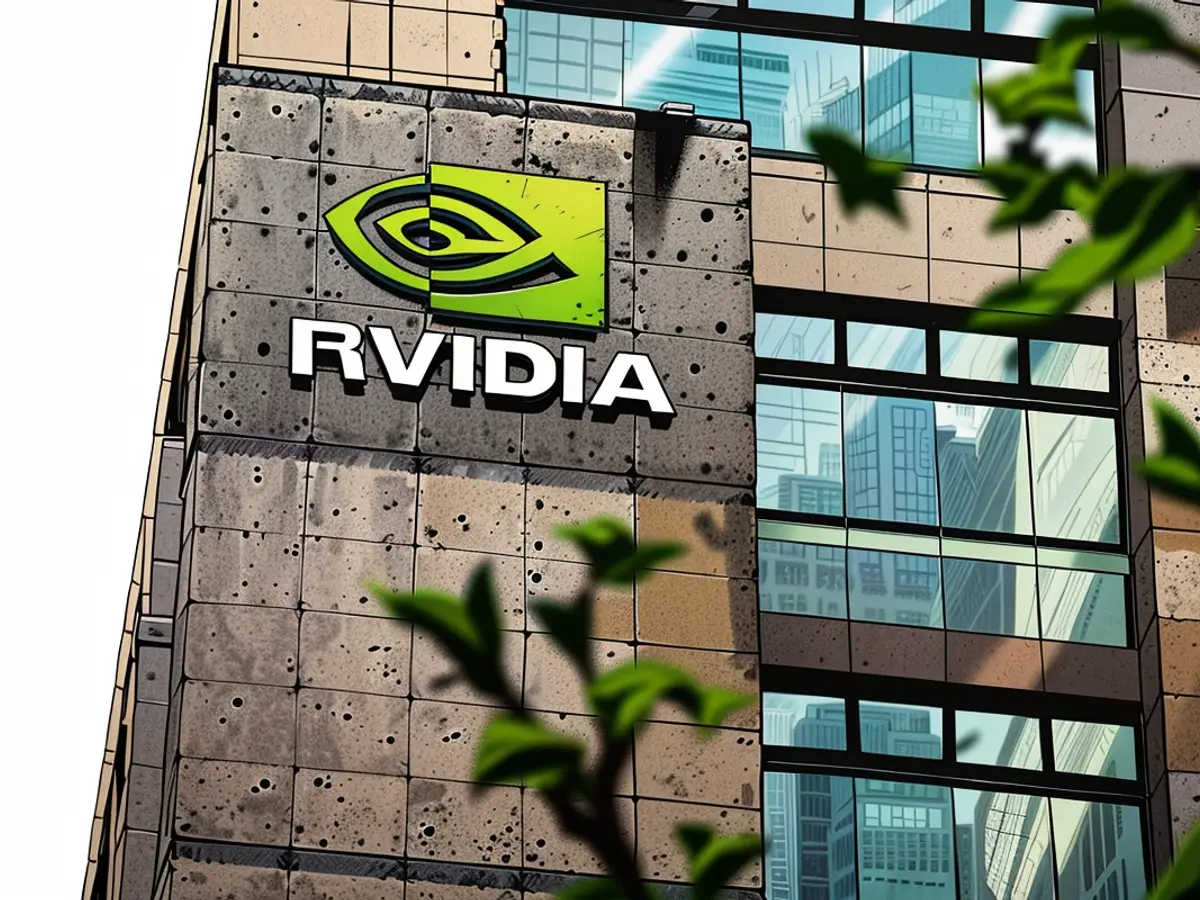Nvidia's stock plummets, diminishing its market value by an staggering $430 billion.
Tech heavyweight Nvidia's market cap soared to an astounding $3.34 trillion on June 18, surpassing Microsoft's, but it's currently valued at $2.91 trillion after shedding $430 billion. This shift pushes Nvidia into the third spot globally, with Microsoft and Apple leading with market caps of $3.33 trillion and $3.19 trillion respectively.
Nvidia's shares plunged 6.7% on Monday, marking the third consecutive day of declines, indicating that investors' enthusiasm over Nvidia's anticipated role in the artificial intelligence revolution may be dwindling following impressive gains in the stock.
Jim Reid, a research strategist at Deutsche Bank, stated in a Monday note that there have been indications of overenthusiasm in the US market over the last month regarding AI.
Nvidia's stock has skyrocketed, rising nearly 139% over the past year. The company's chips power AI systems, including generative AI, the technology behind OpenAI's ChatGPT that generates text, images, and other media.
According to Jochen Stanzl, chief market analyst at trading platform CMC Markets, the perceived volatility in Nvidia's stock is typical when a stock rises as rapidly as Nvidia did. Investors have been selling off stocks with the best year-to-date performance.
Is market contagion a concern?
The hype surrounding AI's potential to drastically transform our lives and work—and provide substantial returns for investors—has significantly influenced the stock market's performance over the past year and a half.
Nvidia is part of the so-called "Magnificent Seven," the mega-cap tech companies whose shares significantly outperformed the broader US stock market rally last year. The S&P 500 index climbed 24.2% over 2023, compared to the average 111% rise in the Magnificent Seven's stocks.
Deutsche Bank noted in a Monday report that due to the seven stocks' dominant performance, the US stock market is approaching the most concentrated in history. In a Tuesday report, the bank stated that the previous day's drop in Nvidia's stock had "held down US equity returns more broadly."
The S&P 500 closed 0.3% down on Monday, while the tech-heavy Nasdaq fell 1.2%.
However, Derren Nathan, head of equity research at investment platform Hargreaves Lansdown, doesn't foresee widespread impact.
"Although Nvidia has coughed, the broader market hasn't caught a cold, with varying, less extreme movements in both directions for the rest of the Magnificent Seven," Nathan wrote in a Tuesday note. "Meanwhile, in other sectors, US stocks saw gains on Monday in energy, financials, and utilities—a show of confidence from investors in the overall health of the economy."
Read also:
Nvidia's stock decline may affect the tech business sector, as its loss of $430 billion contributes to the US stock market's concentration, with tech giants like Microsoft and Apple still leading.
Despite Nvidia's temporary setback in the tech business, the overall market perception of AI's potential for transformation and investment returns remains strong, as shown by the continuous rise in other tech stocks and sectors like energy, financials, and utilities.








